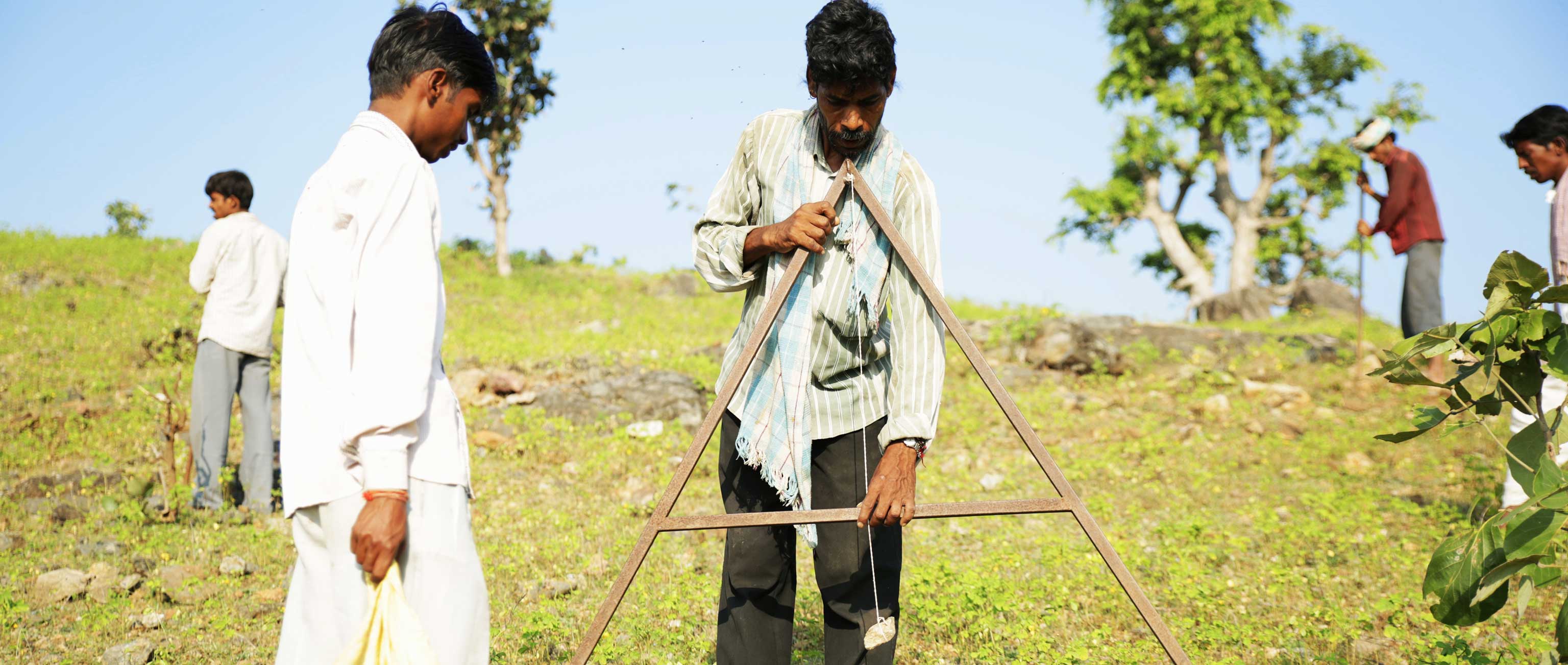From Forlorn Wastelands to Thriving Commons in India
Years ago, early in Jagdeesh Rao Puppala’s career, he ran into some trouble with the law in rural western India. He had just returned from a small event where some eminent leaders and villagers had decided to green a patch of derelict land. It was the familiar photo-op of a handful of VIPs planting a row of saplings. When he returned to the office, he found an unfamiliar man waiting for him. The man was from the District Magistrate’s office. He handed him an envelope. Inside, Jagdeesh found a notice of trespassing.
“What the villagers think is their land, the government says isn’t,” says Jagdeesh. “What the villagers see as useful land, the government calls wastelands.” This dynamic, common to many agrarian societies, is a holdover from the colonial era. Land that appeared to have little potential to generate revenue for the queen was given this relegated status.
The villagers depend on these marginalized lands for food, water, firewood, timber, and medicine to meet their daily needs. The government has rules and regulations for the land, but it has neither the reach nor the grasp to manage it effectively. “Villagers have no right to this land, so they have little interest in maintaining it,” says Jagdeesh, Chief Executive of Foundation for Ecological Security (2015 Skoll Awardee). “Eventually the land becomes degraded, and that is the tragedy.” The wasteland label becomes a self-fulfilling prophecy—a squandered and valuable resource that falls victim to competing worldviews.
In India there are approximately 50 million hectares of land, an area the size of Kenya, classified as wastelands and degraded lands. Some 25 percent of rural Indians live in extreme poverty and they depend on these wastelands for their day-to-day existence. Jagdeesh and FES argue that the key to both nature conservation and poverty alleviation is securing property rights and developing systems that value the commons.
“We believe that restoring these forests and waters is in its very essence, nation building,” says Jagdeesh. “This serves all of humanity for present and future generations. Repaired ecosystems have a direct benefit on improving the productivity of land, which improves the living conditions of the poor people in the villages.”
While each case differs in nuanced ways, FES has found several themes that run through its work. On the village level, the local rules and regulations are the building blocks of FES’s work. Staff learn the rules, norms, and customs and work to synchronize the village law with the larger, formal legal structures with the local interests and world views in mind. FES enters into agreements with like-minded organizations and works to form partnerships with neighboring villages to expand the reach of these agreements. FES then works to influence state governments to invest in this land.
In recent years, FES has embraced high tech tools and big data to help them scale their impact effectively. They are developing spatial analysis and data analytics that refine forest management. “Decision makers are quick to think that technology has the answers,” says Jagdeesh. “But technology is only what we tell it to do, we can’t forget that human element, that sensitivity.”
To date, FES has helped to recover some 4.5 million hectares of commons and has improved the livelihoods of 6.5 million rural people. “In India, millions is easy,” jokes Jagdeesh. For any given piece of “wasteland”, the returns can be 12 times greater than the initial investment. FES monitors this land closely to see how the soil and water quality and species diversity have improved, as well as how the livelihoods of the villagers have improved. “The boundaries of nature are different than human boundaries,” says Jagdeesh. “Unless you work with the natural boundaries of a forest or a river, the full benefit cannot be comprehended or realized.”
Jagdeesh emphasizes that with the development of the land comes the development of the people. “A vital part of this is enhancing the capacity of local people, the power of collective action, and harnessing these high quality leaders who address these serious ecological, economic, and social deficiencies.” FES is doubling down on its mission to develop human capital by opening rural colleges that train local people to advocate for and manage these common resources.
FES continues to work on the local level, but it has moved into a new phase of operation with an intent to influence policy at a high level. “If I can get you to think like me, than the cause that I espouse for has won,” says Jagdeesh. “Basically what we’re asking for is a shift in mindset.” He points to the rise in awareness of the concept of the knowledge or digital commons which gave birth to the Linux operating system, Wikipedia, and creative commons as signs of progress. “This isn’t just about land and water conditions or how we view nature,” he says. “It’s about a broken economic model.”




